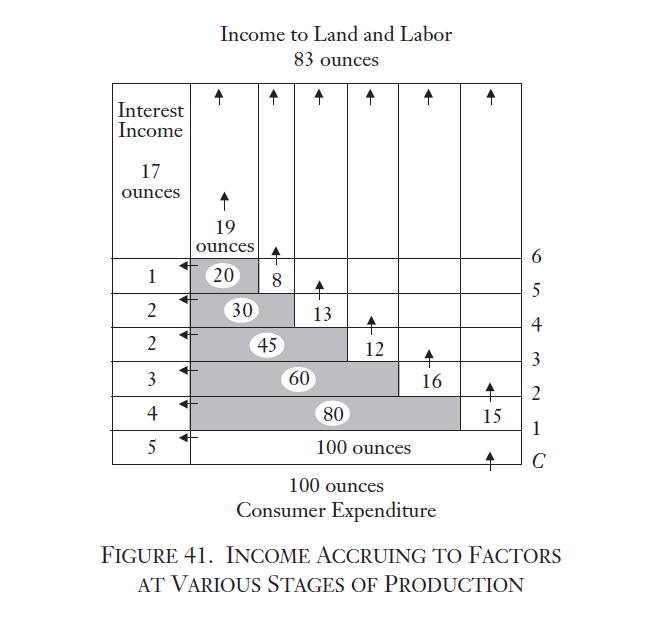The entrepreneurs try to undertake only such projects as appear to promise profits. This means that they endeavor to use the scarce means of production in such a way that the most urgent needs will be satisfied first, and that no part of capital and labor will be devoted to the satisfaction of less urgent needs as long as a more urgent need, for whose satisfaction they could be used, goes unsatisfied. When the government intervenes to make possible a project which promises, not profits, but losses, then there is only talk in public of the need which finds satisfaction through this intervention; we do not hear anything of the needs which fail to be satisfied because the government has diverted to other purposes the means of satisfying them. Only what is gained by
Topics:
Ludwig von Mises considers the following as important: 6b) Mises.org, Featured, newsletter
This could be interesting, too:
Nachrichten Ticker - www.finanzen.ch writes Die Performance der Kryptowährungen in KW 9: Das hat sich bei Bitcoin, Ether & Co. getan
Nachrichten Ticker - www.finanzen.ch writes Wer verbirgt sich hinter der Ethereum-Technologie?
Martin Hartmann writes Eine Analyse nach den Lehren von Milton Friedman
Marc Chandler writes March 2025 Monthly
 The entrepreneurs try to undertake only such projects as appear to promise profits. This means that they endeavor to use the scarce means of production in such a way that the most urgent needs will be satisfied first, and that no part of capital and labor will be devoted to the satisfaction of less urgent needs as long as a more urgent need, for whose satisfaction they could be used, goes unsatisfied.
The entrepreneurs try to undertake only such projects as appear to promise profits. This means that they endeavor to use the scarce means of production in such a way that the most urgent needs will be satisfied first, and that no part of capital and labor will be devoted to the satisfaction of less urgent needs as long as a more urgent need, for whose satisfaction they could be used, goes unsatisfied.
When the government intervenes to make possible a project which promises, not profits, but losses, then there is only talk in public of the need which finds satisfaction through this intervention; we do not hear anything of the needs which fail to be satisfied because the government has diverted to other purposes the means of satisfying them. Only what is gained by the government action is considered, not also what it costs.
The economist is not called upon to tell the people what they should do and how they should use their resources. But it is his duty to call public attention to the costs. This differentiates him from the quack who always speaks only of what the intervention gives, never of what it takes.
Let us, for instance, consider a case which we may judge with objectivity today because it is a matter of the past, though not of a very distant past. It is proposed that a railroad, the construction and operation of which does not promise profitability, is to be made possible by a government subsidy. It may be, it is said, that the railroad is not profitable in the usual sense of the word and that, therefore, it is not attractive to entrepreneurs and capitalists, but it would contribute to the development of the whole region. It would promote trade, commerce, and agriculture and thus it would make an important contribution to the progress of the economy. All this would have to be taken into consideration if the value of this construction and operation is to be judged from a higher standpoint than that of profitability alone. From the standpoint of private interests the construction of the railroad may appear inadvisable. But from the standpoint of the national welfare it seems beneficial.
This reasoning is thoroughly mistaken. Of course, it cannot be denied that the inhabitants of the region through which the railroad is to run would be benefited. Or, more accurately, it gives advantages to the landowners of this region and to those who have made investments there which cannot be transferred elsewhere without a diminution of their value. It is said that it develops the productive forces of the regions through which it runs. The economist has to express this differently: The state pays the subsidies out of the taxpayers’ money for the construction, maintenance, and operation of the line which, without this assistance, could not be built and operated. These subsidies shift a part of the production from locations which offer more favorable natural conditions of production to locations which are less suited for this purpose. Land will be cultivated which, in view of its distance from the centers of consumption and in view of its low fertility, could not permit profitable cultivation unless it is subsidized indirectly by financial grants to the transport system, to the cost of which it cannot contribute proportionately. Certainly, these subsidies contribute to the economic development of a region where otherwise less would be produced. But the production increase in the part of the country thus favored by the government’s railroad policy is to be contrasted with the burden placed on production and consumption in those parts of the country which have to pay the costs of the government policy. The poorer, less fertile, and more remote land is being subsidized out of the proceeds of taxes, which either burden the production of better land or have to be borne by the consumers directly. The enterprises which are located in the less advantageous region will be able to expand production, but the enterprises in more advantageous locations will have to restrict their production. One may consider this as “just” or politically expedient, but one should not be deluded into believing that it increases the total satisfaction; it reduces it.
One should not consider the increase of production in the region served by the subsidized railroad an “advantage from the standpoint of national welfare.” These advantages amount only to this, that a number of enterprises are operating in locations which under different conditions would have been regarded as unfavorable. The privileges which the state grants to these enterprises indirectly by subsidizing the railroads are in no way different from those privileges which the state grants to other less efficient enterprises under different conditions. In the final analysis, the effect is the same whether the state subsidizes or grants privileges to a cobbler’s business, for instance, in order to enable him to compete with the shoe manufacturers, or whether it favors land, which due to its location is not competitive, by paying out of public funds part of the costs of transporting its products.
It does not matter whether the state undertakes the unprofitable enterprise itself, or whether it subsidizes a private business so that it may undertake the unprofitable enterprise. The effect on the community is identical in both instances. The method used in granting the subsidy is not important either. It does not matter whether the less efficient producer is subsidized so that he may produce or increase his production, or whether the more efficient producer is subsidized so that he will not produce, or will restrict his production. It is immaterial whether bounties are paid for producing or for not producing, or whether the government buys up the products to withhold them from the market. In each case the citizens pay twice—once as taxpayers who indirectly pay the subsidy, and then again as consumers in higher prices for the goods they buy and in reduced consumption.
A selection from chapter IV of Interventionism: An Economic Analysis.
Tags: Featured,newsletter







